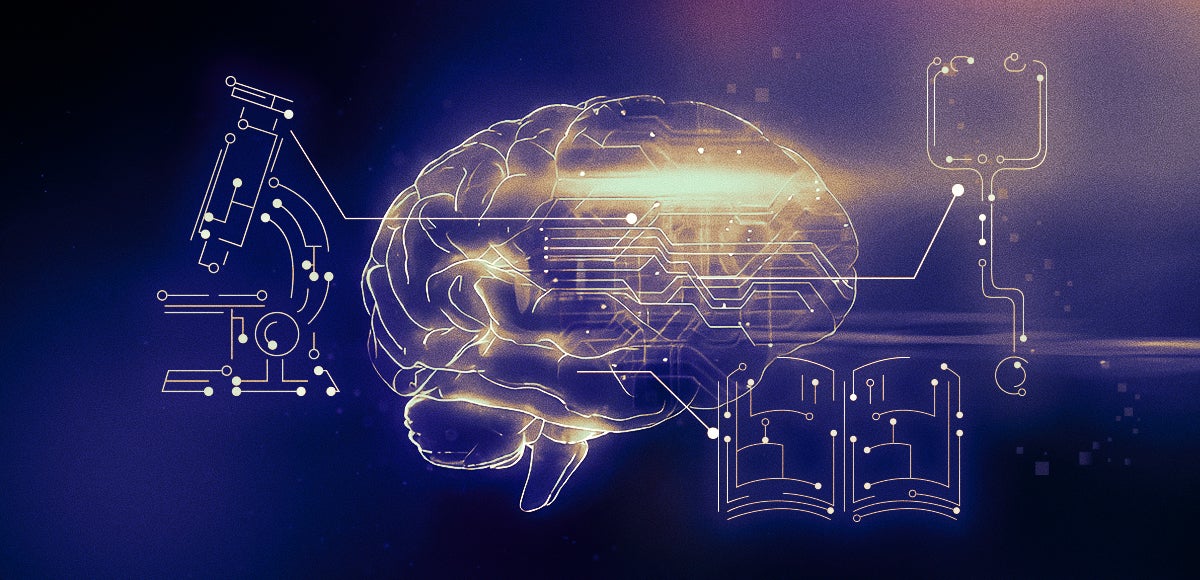In the digital age, the sheer volume of data available to researchers, businesses, and professionals is staggering. With new data constantly being produced, organizing, analyzing, and deriving insights can feel overwhelming. Enter intelligent tools, a transformative technology that enhances research efficiency and empowers users with streamlined workflows, smarter insights, and faster results. As intelligent research tools continue to evolve, they bring unprecedented advantages, reshaping research across fields, from academia to business and beyond.
In this article, we’ll explore how intelligent tools are revolutionizing research efficiency. From data collection to analysis, visualization, and decision-making, these advanced tools are transforming the way we work with data, making research processes smarter, faster, and more effective.
Understanding Intelligent Research Tools
Intelligent research tools encompass a broad category of technologies designed to support and enhance the research process. These tools leverage artificial intelligence (AI), machine learning (ML), natural language processing (NLP), and other advanced algorithms to automate repetitive tasks, discover patterns, and offer deeper insights from vast datasets.
Whether through AI-driven data scraping, intelligent search engines, or automated analysis platforms, these tools are equipped to perform tasks that traditionally require significant human input. In essence, intelligent research tools act as digital research assistants, designed to increase productivity and deliver high-quality insights.
Key Benefits Of Intelligent Research Tools
Enhanced Data Collection And Processing
Intelligent tools have transformed data collection, a process that once required extensive manual effort. AI-powered data scraping tools, for instance, can now automatically gather, filter, and organize information from vast online sources, such as research papers, social media, websites, and databases. These tools are incredibly precise and capable of locating relevant information from billions of web pages within seconds, making the data-gathering process faster and more reliable. For qualitative researchers, AI research tools can now analyze and categorize textual data more accurately by identifying keywords, topics, and sentiment. This capability greatly enhances researchers’ understanding of large volumes of data, as well as provides structured outputs that are easier to analyze.
Streamlined Data Analysis
With intelligent tools, data analysis has evolved from a labor-intensive task into an automated, accurate, and efficient process. Machine learning algorithms, for example, can examine datasets to detect patterns, correlations, and anomalies, providing insights that are often missed by human eyes. Such tools are designed to make sense of complex datasets by identifying trends and highlighting significant findings, allowing researchers to gain insights faster and with higher accuracy. AI-powered statistical analysis tools enable users to generate models and test hypotheses within seconds, helping researchers conduct sophisticated analyses without needing extensive statistical expertise. This opens the door for researchers across disciplines to analyze data quickly and make informed decisions with confidence.
Improved Accuracy And Precision
Human error is an unavoidable part of manual data processing and analysis. However, intelligent research tools minimize this risk by automating calculations, organizing data consistently, and providing results with high accuracy. By using these tools, researchers can avoid costly mistakes that arise from oversight or calculation errors. Moreover, with advanced algorithms driving the process, intelligent tools can manage highly complex datasets with precision, ensuring that the findings are both reliable and accurate. This level of accuracy not only improves the quality of research but also increases trust in the findings, particularly in fields where precision is paramount, such as healthcare and engineering.
Time And Cost Efficiency
Research can be resource-intensive, often requiring considerable time, financial investment, and human labor. Intelligent tools help reduce these demands by automating laborious tasks, expediting workflows, and cutting down on the need for large research teams. For instance, NLP tools can now summarize lengthy documents, allowing researchers to quickly understand the core content without reading through every word. Similarly, data visualization tools can convert raw data into charts and graphs instantly, saving time on manual data presentation. With faster turnaround times and reduced resource requirements, intelligent tools offer cost savings for individuals and organizations alike. This allows researchers to allocate their resources more efficiently, focusing on high-value tasks that truly require human insight.
Enhanced Collaboration And Accessibility
Collaboration is a critical element of modern research, and intelligent tools are making it easier than ever for researchers to work together, regardless of geographical location. Cloud-based AI tools, for example, enable real-time data sharing, collaborative editing, and centralized data storage, ensuring that all team members have access to the latest information. Furthermore, intelligent tools can help bridge the accessibility gap by democratizing research capabilities. With affordable access to powerful tools, smaller organizations, independent researchers, and students can now conduct sophisticated research without requiring extensive resources. This levels the playing field, empowering more voices to contribute to global research efforts.
Intelligent Tools In Action: Real-World Applications
Intelligent research tools are already making a profound impact across multiple industries. Here are a few notable examples:
- Healthcare: AI-driven tools in healthcare research are being used to sift through medical records, genetic data, and clinical trial results. Tools like IBM Watson Health use AI to analyze massive datasets and suggest treatment options based on historical data, increasing efficiency and improving patient outcomes.
- Marketing And Consumer Research: NLP tools can analyze customer sentiment from social media, reviews, and feedback surveys, helping brands understand consumer preferences. This allows marketing teams to respond swiftly to customer needs and trends.
- Academic Research: Tools like Google Scholar and Semantic Scholar have integrated AI features to help researchers find relevant studies and filter by citations, popularity, and novelty. These platforms streamline the literature review process, making it easier for scholars to keep up with the latest research in their field.
- Finance And Economics: In finance, AI tools are used to analyze stock market data, economic trends, and investment risks. Predictive algorithms can process vast financial datasets to identify market patterns, helping analysts and investors make data-driven decisions.
Overcoming Challenges With Intelligent Research Tools
While the benefits of intelligent tools are considerable, there are challenges to consider. Privacy concerns, data security, and potential biases in AI algorithms are areas that researchers must navigate carefully. It’s essential to ensure that data used by these tools is ethically sourced and that privacy standards are maintained, especially when handling sensitive information.
Another challenge is the steep learning curve associated with some intelligent tools. Although many are designed to be user-friendly, there can still be a need for training, particularly when using advanced AI and ML functionalities. Ensuring that users have access to training and support can help maximize the benefits of these tools and minimize potential errors.
The Future Of Research With Intelligent Tools
As technology continues to advance, intelligent research tools are expected to become even more powerful and versatile. Emerging trends include the integration of real-time data analytics, more sophisticated predictive algorithms, and the rise of explainable AI, which allows researchers to understand how AI-generated insights are formed. These advancements are likely to further optimize research processes, increase transparency, and enhance trust in AI-driven results.
Another exciting development is the use of AI-driven personalization. Intelligent tools are expected to adapt to researchers’ preferences, learning from their past activities to provide customized suggestions and insights. This personalization will not only save time but also help researchers discover relevant information more intuitively.
In the end, Intelligent research tools represent a new era of efficiency, accuracy, and accessibility in research. By automating repetitive tasks, enhancing accuracy, and enabling real-time collaboration, these tools empower researchers to achieve more in less time. They bring about a significant paradigm shift, redefining research processes and transforming industries that rely on data-driven insights. With the support of intelligent tools, the future of research looks brighter, more efficient, and more accessible to all. This is indeed an exciting time for anyone engaged in research, and the benefits of intelligent tools are just beginning to unfold. For those who are ready to embrace this technology, the possibilities are boundless, opening doors to new insights and opportunities previously unimaginable.





